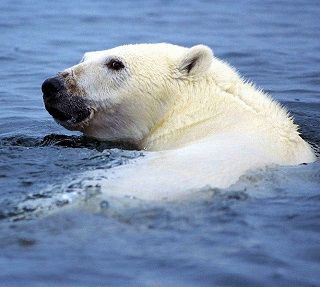Explaining Humankind’s Blase’ Response to Climate Change

* Late 2007: The Intergovernmental Panel on Climate Change (IPCC) announces that the planet will see a one degree Celsius temperature increase due to climate change by 2100.
* Late 2008: The Hadley Centre for Meteorological Research predicts a 2C increase by 2100.
* Mid-2009: The U.N. Environment Programme predicts a 3.5C increase by 2100. Such an increase would remove habitat for human beings on this planet, as nearly all the plankton in the oceans would be destroyed, and associated temperature swings would kill off many land plants. Humans have never lived on a planet at 3.5C above baseline.
* October 2009: The Hadley Centre for Meteorological Research releases an updated prediction, suggesting a 4C temperature increase by 2060.
* November 2009: The Global Carbon Project, which monitors the global carbon cycle, and the Copenhagen Diagnosis, a climate science report, predict 6C and 7C temperature increases, respectively, by 2100.
* December 2010: The U.N. Environment Programme predicts up to a 5C increase by 2050.
* 2012: The conservative International Energy Agency’s World Energy Outlook report for that year states that we are on track to reach a 2C increase by 2017.
* November 2013: The International Energy Agency predicts a 3.5C increase by 2035.
Cameron responded to my terse comment (“Scary stuff!”), and I thought I’d reproduce what we wrote here:
It is, isn’t it?
I just wrote to 350.org and told them they need to consider circulating strongly the idea that we need to stop using the inaccurate and milquetoast terms “global warming” and “climate change” and that we should instead always call it “climate disruption” or even “planetary climate disruption” in recognition of the fact that this is not merely “warming” and this isn’t simply “change” but instead we’ll be seeing increasing severe weather of all kinds across the globe as well as deeper and longer periods of drought here in the US.
Just now, the mountains around Big Sur are on fire, long after the normal fire season – a tragedy exacerbated by the fact that, while we normally receive 45 inches of rain in that coastal region, this year has seen only 7 inches there. We’re also in the straight third year of drought statewide. Throughout 2012 (the hottest year on record), it proved impossible to grow corn in some of the richest farmland in the world.
I found it interesting that an article discussed how people will modify their behavior to avoid the perceived threat of an increased risk of cancer or heart disease, but the crucial difference there is that it’s a personal threat to one’s body, and one that people are increasingly intimately familiar with as we age and see friends and family stricken. Planetary climate disruption is a process from which personal effects are far less obvious and clear cut to many people, and (unlike the fossil deniers) there isn’t any longer a veritable industry built around denying many of the health hazards that people are gradually learning to avoid (smoking, trans-fats, etc.).
Nice job, Cameron. Without doubt, we’ve gone in the direction of selfishness and greed in a big way here recently. It’s a tragedy, and I’m really not too sure what to do or even to say about it.
Coincidentally, this afternoon, we had a guy out here fixing the fan/vent that sucks cooking smoke away from our island range. When I marveled about how technology is making our lives better, he retorted, “That’s true, sir. But technology is not keeping up with a force that is ruining our lives at an even faster pace: greed.”
Mind you, this came from a stove repairman, not some radical philosophy professor at Berkeley. I’m suggesting there’s some truth here.

I think Cameron is correct. “Planetary climate disruption” is a much better and true representative. Who can deny climate disruption? Just based on Cameron’s listed examples alone, it is evident that changes to our climate are effecting the health’s,livelihoods and food and water security of millions. Not forgetting the consequences of increased bush-fires, increased temperatures, and increased pollution levels on wildlife. I really hope that people start waking up to this truth NOW, while there is still chance to reduce and act on our largest contributor to planetary climate disruption – carbon dioxide. Because sooner or later, and already for many people have woken up too late, after their cities have been flooded or wiped flat by storms.
Craig,
The reason that people aren’t frantic about it:
Since 1910, the planet has warmed roughly 1 degree C… and very few people would say that life is worse now than it was 100 years ago. They believe we’ll see technology continue to improve at a greater rate than the change in climate could make things worse.
The only way to combat this is to point out the absolute worst case scenarios and possibilities seen in the model – in which case you are (correctly) labeled an “alarmist”, which is an extraordinarily successful rhetorical tactic that the fossil fuels companies have used to keep the discussion muted.
But even in the midst of so much doubt, the U.S. has been reducing its carbon emissions overall since 2007, as has Europe, Japan, and several other nations. Global emissions are only growing at ~2.2%, a MUCH slower growth than was seen in decades past, and that rate is slowing further.
Good things abound, but there’s no way we aren’t going to have to pay some significant accommodation costs as the climate changes.
It’s going to take something seriously different – like waking up one September morning (probably in 2017) to hear there is no arctic ice cap – before the average person will be shocked into really considering how much and how quickly we are changing our climate… Then there might be more support for greater measures to mitigate emissions.